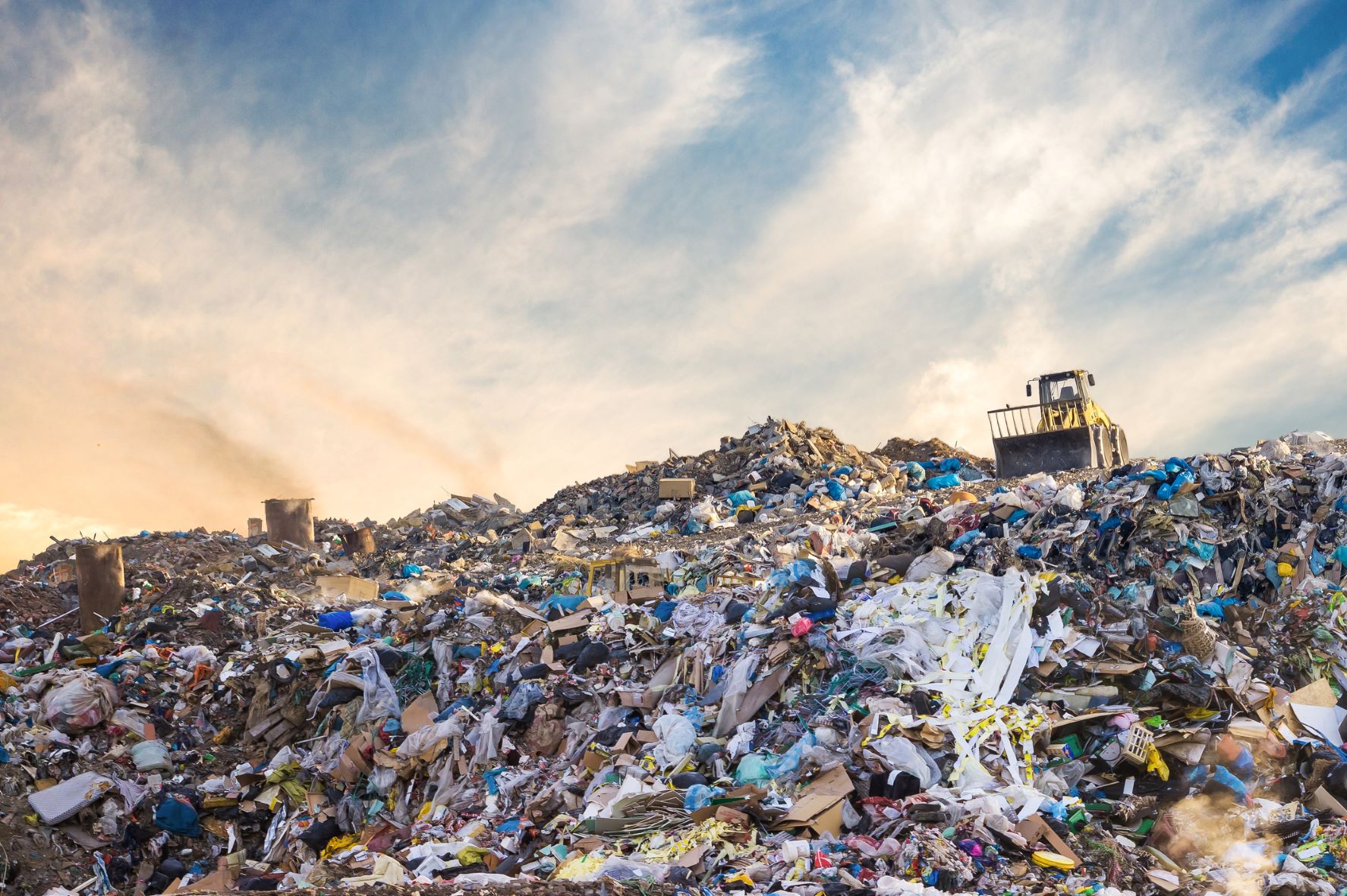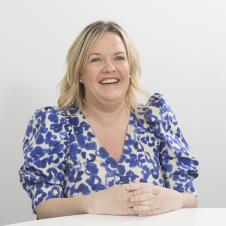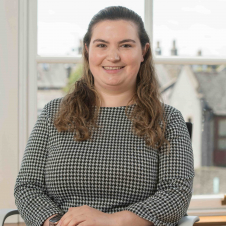The focus of the 2022/23 Scottish Budget, delivered by Cabinet Secretary for Finance and Economy, Kate Forbes MSP, was on a "fairer, greener, more prosperous Scotland".
Coming less than a month after the UN Climate Change summit, COP26, in Glasgow, against a backdrop of the headline-dominating Omicron COVID-19 variant and the current cost of living crisis, it is no surprise that the Budget centred around plans to rebuild the economy and support businesses and individuals across Scotland, while also delivering on the Scottish Government's net zero ambitions.
Ms Forbes laid out the Government’s tax and spending plans for the year ahead, including key announcements:
Scotland’s First Framework for Tax - an update
Renewable energy and infrastructure
Land and Buildings Transaction Tax & Additional Dwelling Supplement
Scottish Income Tax
Scottish Income Tax Rates will remain unchanged in 2022-23. While starter and basic rate bands will increase by CPI inflation (3.1%), the higher and top rate thresholds will remain frozen in cash terms at £43,662 and £150,000 respectively.
| Band | Income Range | Rate |
|---|---|---|
| Starter Rate | Over £12,570 - £14,732 | 19% |
| Basic Rate | Over £14,732 - £25,688 | 20% |
| Intermediate Rate | Over 25,688 - £43,662 | 21% |
| Higher Rate | Over £43,662 - £150,000* | 41% |
| Top Rate | Over £150,000** | 46% |
Scottish resident taxpayers will also have to factor in the UK wide health and social care levy on earned income of 1.25%, which comes into effect on 6 April 2022 and will see all taxpayers pay a higher marginal tax rate.
* Assumes individuals are in receipt of the Standard UK Personal Allowance
** The Top Rate remains at 2021-22 level. Those earning more than £100,000 will see their Personal Allowance reduced by £1 for every £2 earned over £100,000

Scotland’s First Framework for Tax - an update
The Scottish Government also shared feedback received in response to the consultation that is helping them shape their First Framework for Tax - a framework that will be finalised in the coming days.
A wide range of stakeholders fed into this, including tax professionals, business representatives, civil servants and research institutes.
From these consultations three key themes arose:
- Stability - the need for ongoing stability in the tax system was flagged and caution given against tax policy changes that would put further pressure on business or household finances. To include no further divergence between Scottish and UK tax policy at this time.
- Recovery - recovery from the pandemic was put forward as a top priority - to include a support package for business - and once again cautioning against any new business taxes or levies that could impact recovery.
- Reform - widespread calls for tax policy reform, particularly focused on the local tax powers (e.g. Non-Domestic Rates and Council Tax).
We await the release of the First Framework for Tax in the coming days which will allow us to see the proposed shape of things to come for Scotland’s Tax system.
Renewable energy and infrastructure
The Cabinet Secretary for Finance and Economy, Kate Forbes MSP seemed to lay the groundwork to position the country as a global leader in renewable energy. She did so with a £2 billion low carbon capital investment in Scotland’s public infrastructure – supporting the decarbonisation of our homes and buildings, transport and industry. This includes:
- The first £20 million of their 10 year £500 million Just Transition Fund, which will go towards projects in the North-East and Moray.
- £414 million for energy efficiency and renewable heat and low carbon and renewable heat including £60 million for large scale heat decarbonisation projects.
- Investment of £53m across a range of industrial decarbonisation projects.
The Government will also invest £43million to drive forward Scotland's circular economy and £53 million to restore Scotland’s natural environment, including peatlands.
The farming sector was allocated over £50 million to support tackling the climate and nature emergencies and to produce food more sustainably. This included £10 million for the National Test Programme to transform agriculture, and £35.8 million for agri-environment schemes.
A further £69.5 million is to be invested in woodland creation and sustainable management of Scotland’s woodlands.
Land and Buildings Transaction Tax & Additional Dwelling Supplement
There are no changes to the rates and bandings of Land and Buildings Transaction Tax (LBTT) for both residential and non-residential transactions. The First-Time Buyer Relief also continues for residential transactions, this has the effect of increasing the nil rate band from £145,000 to £175,000 for first-time buyers.
| Band | Relevant Consideration | Rate |
|---|---|---|
| Nil rate band | Not more than £145,000 | 0% |
| First tax band | More than £145,000 but not more than £250,000 | 2% |
| Second tax band | More than £250,000 but not more than £325,000 | 5% |
| Third tax band | More than £325,000 but not more than £750,000 | 10% |
| Fourth tax band | More than £750,000 | 12% |
The Additional Dwelling Supplement (ADS) will continue to be charged at 4% in 2022-23. The Scottish Government is to consult with stakeholders regarding the operation of the ADS before making proposals to amend the ADS legislation. It should be noted that there is an ADS equivalent under Stamp Duty Land Tax where the rate is 3%. For buyers who are non-UK resident, there is an additional 2% SDLT surcharge (making 5% in total). One option would be for a similar surcharge to be introduced for LBTT. A further area of concern would be the interaction of the ADS and multiple dwellings relief. Currently, the operation of these reliefs works quite differently in Scotland than it does in England and Northern Ireland. The relief in Scotland can be more generous, comparatively, and whilst this is generally of benefit to businesses, this could become a target for reform.

Air Departure Tax
Once a solution to the Highlands and Islands exemption issue has been found, the Scottish Government remains committed to introducing Air Departure Tax (ADT). As stated in the Programme for Government 2021-22, the Scottish Government intends to protect the Highlands and Islands exemption and to review the Air Passenger Duty (APD) rates and bands. This will be carried out ahead of the introduction of ADT to ensure that policy aligns with Scotland’s climate change goals. Until ADT is introduced, the UK Government will maintain the application of Air Passenger Duty in Scotland.
Aggregates Levy
Currently, the UK levy is paid on the commercial exploitation of aggregates, i.e., sand, gravel and rock. The Scotland Act 2016 gave the Scottish Parliament the power to introduce a devolved Aggregates Levy in Scotland. The Scottish Government will continue to progress work on a devolved levy, which will include introducing the necessary primary legislation in this session of Parliament.
Scottish Landfill Tax
The standard rate of SLfT will increase to £98.60 per tonne (from £96.70) with the lower rate of SLfT increasing to £3.15 per tonne (from £3.10) in 2022-23. The credit rate for the Scottish Landfill Communities Fund for 2022-23 will remain at a maximum of 5.6% of an operator’s tax liability.

Inflation and earnings growth
In line with the October 2021, Office for Budget Responsibility inflation forecast for the UK, the Scottish Fiscal Commission (SFC) is also forecasting significantly higher price inflation in the economy, with an expected peak at 4.4% in April to June 2022. Consequently, the SFC forecast real earnings growth of -0.8% in 2022-23.
Business rates
The retail, hospitality & leisure sector will continue to benefit from a 50% rates relief reduction for the first three months of 2022, up to a maximum of £27,500 per ratepayer. Small businesses with a rateable value of less than £15,000 will continue to pay no rates for this financial year - irrespective of sector.
Scottish Child Payment
From April 2022 this will be doubled to £20 per week and the eligibility of households with children will be expanded from those with children under 6, to all children aged 6-15 by December 2022.
Council Tax Freeze ending
For the first time since 2007, councils will have complete flexibility to set their council tax rates going forward in 2022/23.



